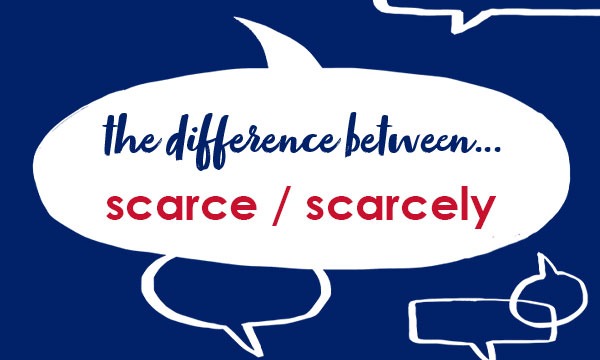This week we are looking at two words which may be confused by learners of English: scarce and scarcely.
scarce

Scarce is an adjective. If something is scarce, very little of it is available.
The desert is a place where water is scarce.
Good quality land is scarce.
Don’t use `scarce’ to say that something is not common, and is therefore interesting – use ‘rare’ instead.
This flower is so rare that few botanists have ever seen it.
Deepak’s hobby is collecting rare books.
scarcely

Scarcely is an adverb that means the same as `hardly’. If something is scarcely true, it is almost not true. If something scarcely exists, it almost does not exist. Don’t use ‘not’ with scarcely.
The smell was so bad I could scarcely bear it.
The woman was scarcely able to walk.
If you use an auxiliary verb or modal with scarcely, put the auxiliary verb or modal first. Say, for example, `I could scarcely stand’.
I can scarcely remember what we ate.
Scarcely is sometimes used to emphasize that one thing happened immediately after another. Use ‘when’ in sentences like these.
We had scarcely arrived when it was time to leave again.
In literary writing, scarcely is sometimes put at the beginning of a sentence, followed by had or the verb be and the subject.
Scarcely had she put down the receiver when the phone rang again.
Scarcely were the words spoken when he began to regret them.
Find out more in our English Usage article.
This blogpost is based on Collins COBUILD English Usage, written for learners of English. For more examples of English usage points, please visit: https://grammar.collinsdictionary.com/english-usage.
All opinions expressed on this blog are those of the individual writers, and do not necessarily reflect the opinions or policies of Collins, or its parent company, HarperCollins.




collins_dictionary_official
The home of living language. #wotd #wordlovers #collinsdictionary
Read our word of the week definitions and blog posts: